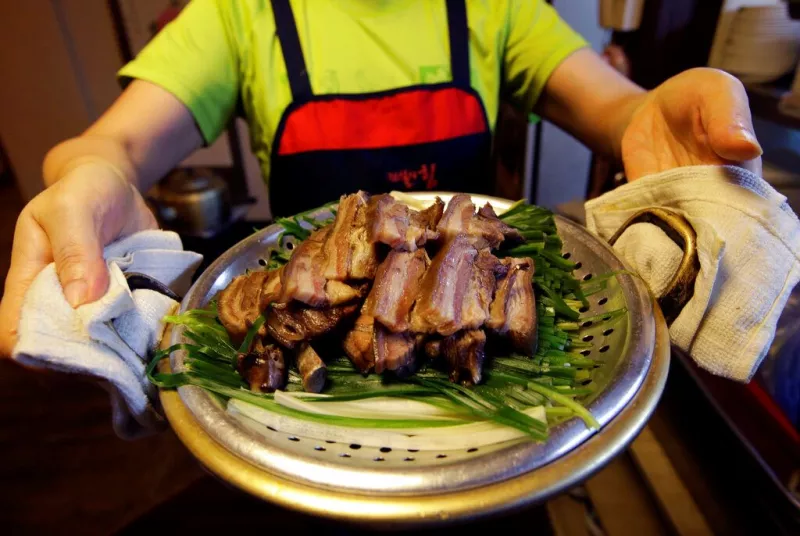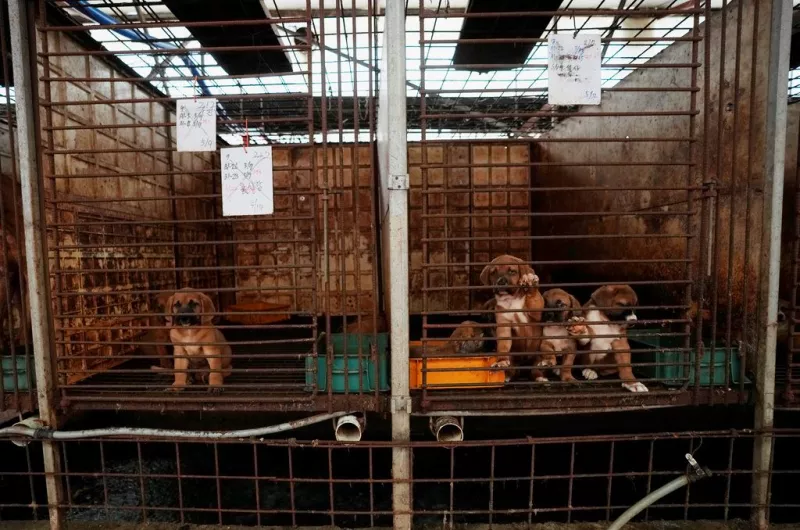In January 2024, South Korea passed a law prohibiting a dog consumption, ending the centuries -long practice of eating dog meat, which is no longer popular, especially for young people in the country.
The new legislation will enter into force in 20127, giving farmers and restaurant owners who served exclusively dog meat, time to find alternative sources of employment and income.
Although the decision was welcomed by the West and Animal Organizations, it is a huge blow to the nearly 3,500 farms that bred dogs for consumption in South Korea – as well as about 3,000 restaurants that served exclusively with dog meat dishes.
500,000 dogs facing euthanasia
Apart from the economic disaster that these businesses face – many of which have been dealing with dog farming for decades – there is a very big problem with the animals themselves, about 500,000 today, which have remained in the “unsaid”, and without the government’s care for their future.
“Although the ban on dog meat has passed, both the government and the political groups are still struggling on how to save the remaining dogs,” Lee Sangkyung, a campaign manager at Humane World for Animals Korea (Hwak). He is left behind, ”he said.
A spokesman from the Ministry of Agriculture, Food and Agricultural Affairs in South Korea told the BBC that if farm owners abandon their dogs, local governments would undertake to put them in shelters.
But hosting breeding dogs has been proven difficult as Rescue shelters are already overcrowded.
Additional, Citizens of the country find it difficult to adopt a breeding dog for two reasons.
A) These are large breeds, large dogs, while in the urbanized society of South Korea, where many people live in apartment complexes, aspiring pet owners want the opposite.
The issue is further complicated by the fact that many are either clean or mixed “tosa-inu”, a breed that is characterized as “dangerous” in South Korea and requires government approval to be adopted as a pet.
(B) There is also a social stigma associated with dogs derived from meat farms due to concerns about diseases and mental trauma.
All these obstacles specify the end for countless so -called “rescue dogs”. Although they escaped the slaughter, as they have no elsewhere to go, they now face the prospect of euthanasia.
Source: Skai
I have worked as a journalist for over 10 years, and my work has been featured on many different news websites. I am also an author, and my work has been published in several books. I specialize in opinion writing, and I often write about current events and controversial topics. I am a very well-rounded writer, and I have a lot of experience in different areas of journalism. I am a very hard worker, and I am always willing to put in the extra effort to get the job done.












